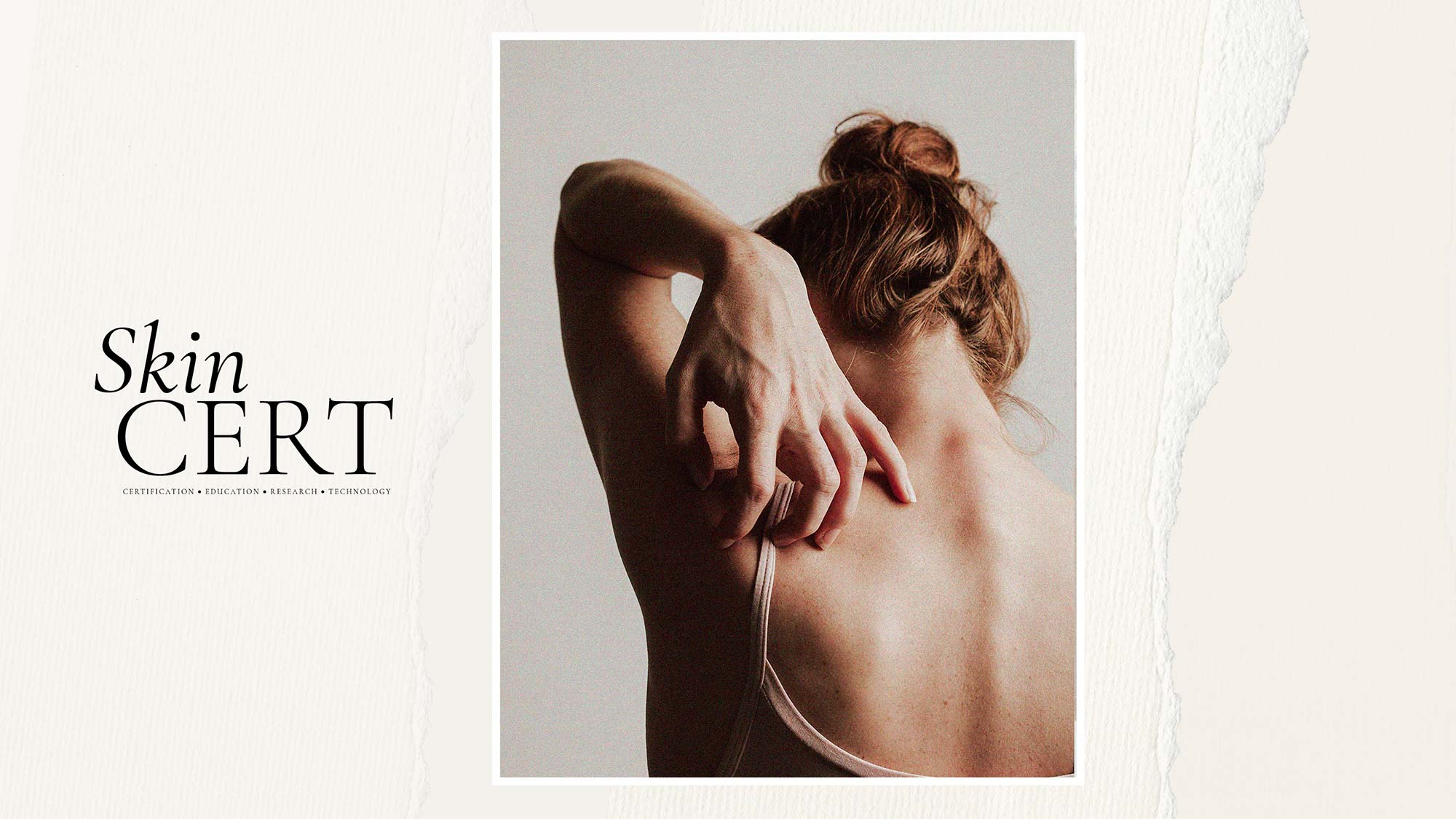Types of eczema: we get to grips with the different variations of the skin condition


Despite usually being referred to as simply 'eczema' there are quite a few different types, each with its own specific set of causes and treatment options. So alongside your best eczema creams, knowing the different types of eczema might just make your maintenance that much easier.
'Eczema is a catch-all term that refers to inflammation of the skin that is related to skin barrier dysfunction,' explains dermatologist Dr Beibei Du-Harpur. But we have dug a little deeper into the different types of eczema, because as they say 'knowledge is power'.
What are the different types of eczema?
Dishydrotic eczema
Also known as pompholyx, dishydrotic eczema appears as tiny, fluid-filled blisters usually on your hands and feet. They look like raised pinpricks covering the top of hands or feet or in patches between the fingers and toes, and are incredibly itchy, becoming even sorer if they burst as your skin tries to heal.
While the exact causes are unknown, it's thought dishydrotic eczema is triggered by stress or upon contact with allergens.
Atopic eczema
Also known as atopic dermatitis, this is the most common type of eczema, often found in people who also have asthma, hay fever and allergies. 'This can be genetic and you may notice your skin gets irritated on the face, in front of the elbows and behind the knees,' Dr Walayat Hussain of Bupa Health Clinics. 'It usually flares up if you have allergies and come into contact with soaps, detergents or other types of chemicals.
'Although there is no cure for atopic eczema, your GP or dermatologist may prescribe you a specific type of moisturiser known as an emollient. These work by restoring water and oils to your skin to soothe and hydrate it, as well as helping to repair the damaged skin.'
Dr Du-Harpur explains that people who suffer from atopic eczema have a lipid matrix that simply is not programmed to mature and develop optimally and therefore the water-retaining ability of the skin is reduced, which is why using rich, nourishing creams is super important.
Celebrity news, beauty, fashion advice, and fascinating features, delivered straight to your inbox!
Contact eczema
This type appears when your skin becomes sensitised to something in the environment. 'Unlike a peanut allergy, which occurs immediately upon exposure, contact dermatitis develops over a period of time as your body becomes sensitised to something you may have been using or wearing for years, such as nickel in jewellery,' says Dr Hussain.
'Contact dermatitis often affects your hands, so avoid this, consider what products you’re using that may be irritating your skin and try shielding your hands from them. Your GP may refer you to a specialist Dermatologist who performs patch testing, which can help identify what you’re allergic to.'
Discoid eczema
This type appears as very itchy, flat red patches of inflamed skin, usually on the arms and or legs, and is most commonly found in middle-aged or elderly people. 'We don’t know what exactly causes discoid eczema, but in keeping with other types, your skin loses moisture and therefore struggles to provide an effective barrier against substances,' says Dr Hussain. 'This means usually harmless substances, like soap, can irritate your skin.
'Although there’s no simple cure for this type of eczema, your dermatologist or pharmacist can recommend some medications to help ease the symptoms, along with daily moisturising.' Read our guide to the best moisturiser for dry skin and choose a gentle formula for eczema-prone skin.
Seborrhoeic eczema
In seborrhoeic eczema, the inflammation usually occurs in areas of your skin that are hairier or more oily, i.e. where there are more sebaceous glands, such as your eyebrows, chest or scalp.
'It’s believed that seborrhoeic dermatitis is caused by having too much yeast in your system or your immune system’s over-reaction to yeast,' adds Dr Hussain. 'Your dermatologist can recommend some creams and shampoos to help reduce the level of yeast you have which should help ease the symptoms.
Varicose eczema
Varicose eczema mainly affects people who have varicose veins, causing the skin around them to become itchy and inflamed, and can be managed by working on improving your circulation.
'This can be done by keeping active and wearing compression socks every day, applying moisturiser to help with the dryness and talking to your pharmacist about which ointments would be best for you,' advises Dr Hussain. 'If this doesn’t work, your GP may refer you to a dermatologist or vascular specialist to explore other treatment options.

Katie Thomas is the Senior Beauty Editor at Marie Claire UK. With over 10 years of experience on women's luxury lifestyle titles, she covers everything from the best beauty looks from the red carpet and stand out trends from the catwalk, to colonic irrigation and to the best mascaras on the market.